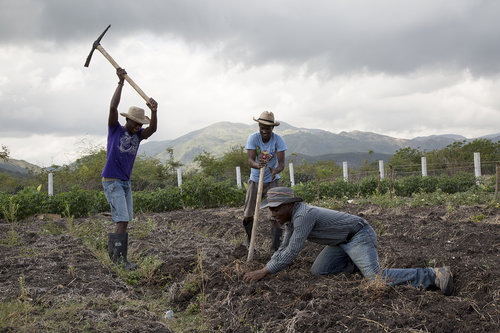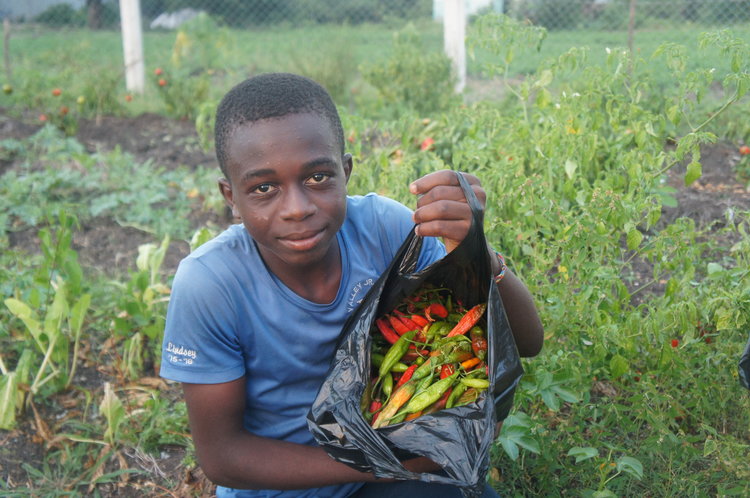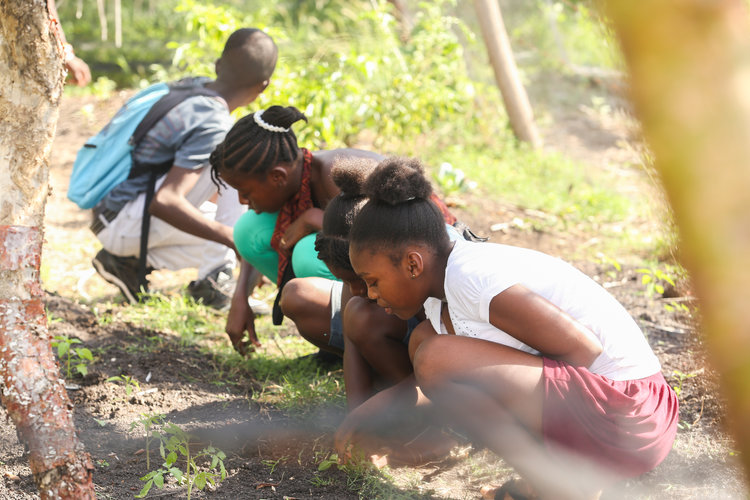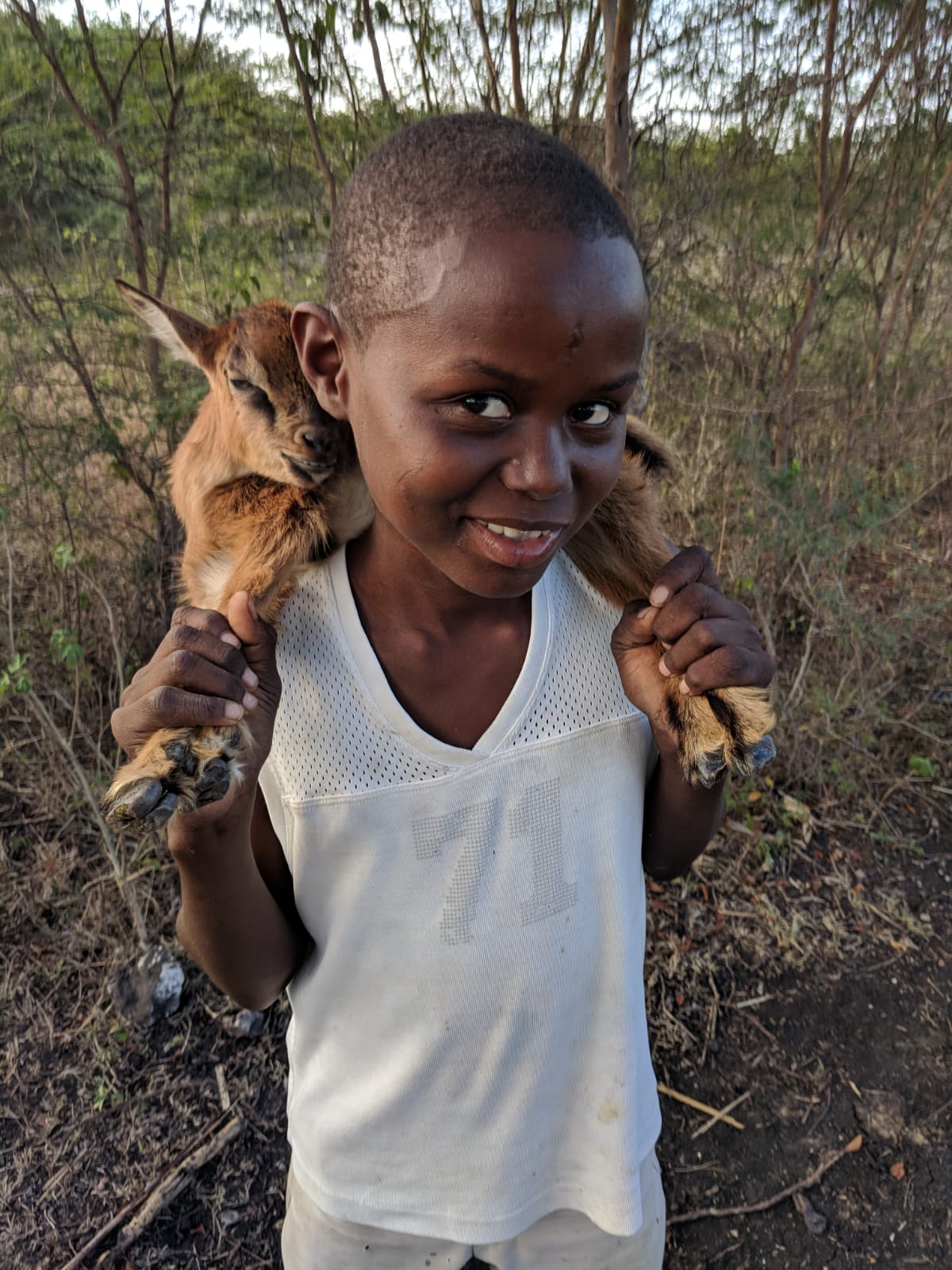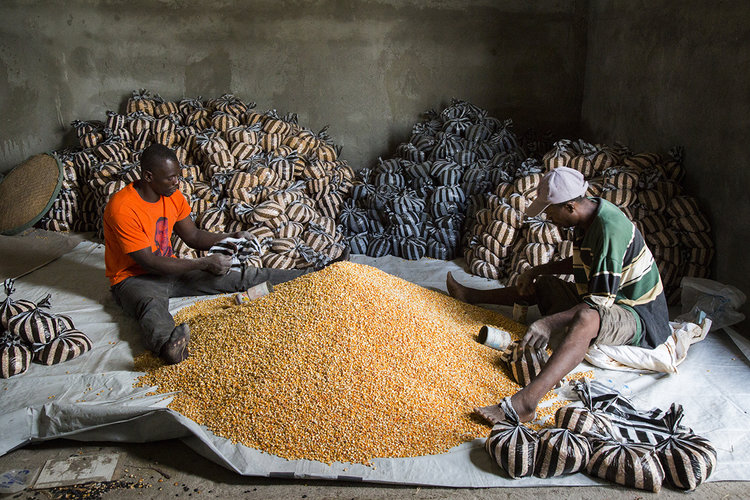Agriculture
More than 50% of families in Petit Trou self-identify as farmers, and agriculture has historically been the backbone of the local economy. In recent years these livelihoods have been put at risk due to a lack of investment, land degradation and deforestation, and the effects of climate change. Through partnerships with local institutions and farmers, we’re working to change that.
St. Paul’s School Garden Club
In addition to receiving classroom instruction on concepts of botany, biology, and horticulture, students in grades six through ten at St. Paul’s School participate in the school gardening club, with the campus garden providing a hands-on, outdoor classroom for learning and experimentation. Club meetings provide ongoing training, during which students learn and practice a range of skills. Projects have included planting trees and vegetables, raising rabbits and goats, exposure to the economic potential of agriculture, and developing simple water catchment systems. Locally Haiti-funded scholarship students Jameson and Schneider recently took over for long-time agronomist and mentor Raphael Fernandez Salvador, managing activities on campus and in the community.
Beekeeping
Expert local beekeeper Jean Elie manages hives and does continuing education with our beekeeping cooperatives. At present, 35 hives are spread across 8 locations. These hives are important for pollination in the area and also provide important economic benefit to the families and cooperatives that own these hives, earning as much as $350 in a year by selling honey.
Food Security & Community Health
Our response to the COVID-19 pandemic gave rise to an innovative approach that leverages the natural synergy between Locally Haiti’s healthcare work and the enormous nutritional needs in Petit Trou. Local leaders designed a program that combines the life-saving work of community health workers with the urgent need to produce food locally. Community health workers are equipped with resources and training to help vulnerable family farms produce more food. The program has increased access to local food in the community, as well as enhanced job satisfaction among health workers and created new pathways for trust and relationship building among institutions. While the program began because of COVID-19, it has continued through emphasis on health worker demonstration gardens, and monthly nutrition trainings related to local products. (See this program in action at the bottom of this page!)
Animal Husbandry
When resources allow, we support local cooperatives with access to funding for keeping, raising, and selling goats. Over the past five years we’ve supported over 100 families with goats, in a cooperative model where one offspring is promised to a neighbor who also participates in the program.
Mangrove Conservation and Environmental Racism
Thanks to a grant from The Episcopal Church’s Task Force on Creation Care which focuses on responding to the growing threat of climate change, systemic environmental racism and injustice, biodiversity loss, and localized environmental degradation, we supported an innovative, community-led mangrove conservation effort. Learn more below!
“Feeding our family is a struggle. My husband and I work hard to grow our own food locally. The support of Raphael, Jameson, and Schneider has been a big help to our family.”






